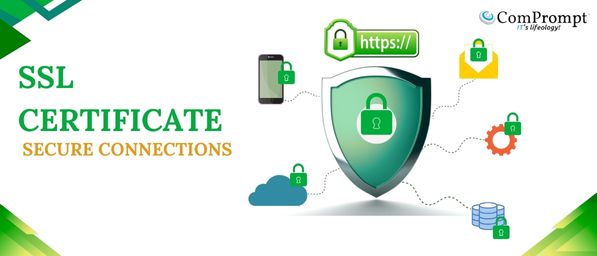SSL CERTIFICATE
An SSL (Secure Sockets Layer) certificate is a digital certificate that encrypts data transferred between a website and its visitors, ensuring secure communication. It helps protect sensitive information like passwords, credit card details, and personal data from hackers.
SSL certificates enable websites to use HTTPS, which is more secure than HTTP. SSL-secured websites are marked with a lock icon in the browser or a green address bar for Extended Validation SSL-secured websites. The URL of an SSL-secured website will also start with “https” instead of “http.”
Type of SSL Certificates
1. Single Domain SSL Certificate
A single domain certificate will secure a primary domain and a single subdomain, hostname, IP address, or mail server. This type of digital certificate is available in DV, OV, and EV validation options, each requiring different validation processes.
2. Multi-Domain SSL Certificate
Multi-Domain SSL certificates allow a single certificate to secure multiple domains, including subdomains of a single main domain name or entirely different domain names.
3. Wildcard SSL Certificate
A wildcard SSL certificate is a single SSL/TLS certificate that can secure a domain and all of its subdomains. The certificate uses an asterisk (*) in the domain name field to indicate that it can secure multiple domains. For example, a wildcard SSL certificate for *.example.com can secure www.example.com, mail.example.com, store.example.com, and any other subdomain.
Benefits of SSL Certificate
Data Encryption & Security
Protects sensitive data like passwords, payment details, and customer information from hackers.
HTTPS & Secure Padlock Icon
Displays HTTPS in the URL and a padlock icon, boosting customer confidence.
Protection Against Cyber Attacks
Prevents attacks, phishing scams, and data breaches.
Regulatory Compliance
Many industries and regulatory bodies require websites to use SSL certificates to protect sensitive customer data.
Prevents phishing attacks
Extended validation certificates (EV certificates) can help protect against phishing attacks by showing the website owner’s full name in the address bar.
SEO Boost
Search engines like Google may give a slight ranking boost to websites that use HTTPS (Hypertext Transfer Protocol Secure), which requires an SSL certificate.






